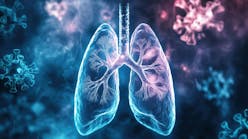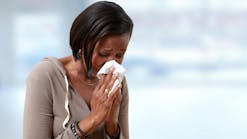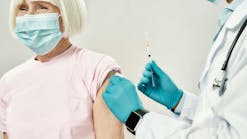COVID-19 vaccine responses to be studied in people with immune deficiencies
A study assessing how people with immune system deficiencies or dysregulations respond to COVID-19 vaccination has begun enrolling participants at the National Institutes of Health Clinical Center in Bethesda, MD.
The single-site study is led by researchers from the National Institute of Allergy and Infectious Diseases (NIAID) and aims to enroll 500 people.
"Through large Phase 3 trials, several experimental COVID-19 vaccines were shown to be safe and effective and three are now authorized by the U.S. Food and Drug Administration for emergency use in the United States," said NIAID Director Anthony S. Fauci MD. "People with immune disorders are typically excluded from trials of experimental vaccines, and this was the case in the COVID-19 vaccine trials. This new study will characterize the features and adequacy of immune responses to COVID-19 vaccination in people with a range of immune deficiencies and dysregulation syndromes and will provide valuable information about benefits and potential risks in these individuals."
The study team also will gather information about COVID-19 illness in people with immune deficiencies and dysregulation conditions.
Potential volunteers may be identified and invited to join the new study through existing NIH study protocol pools of healthy volunteers or via existing protocols involving persons with immune system disorders. Healthcare providers also may refer their patients with immune deficiencies or dysregulation conditions for enrollment. Initially, the study will enroll participants 16 years of age and older. If COVID-19 vaccines are authorized for use in younger people in the future, the enrollment age criterion could expand to include them.
All study visits can be conducted either in person at the NIH Clinical Center or remotely.
Participants may be enrolled if they are completely or partially vaccinated against COVID-19. If a volunteer has not yet been vaccinated, they will provide a blood sample to investigators seven days prior to receipt of an FDA-authorized COVID-19 vaccine. Study participants can receive any authorized COVID-19 vaccine in their local communities.
Blood sampled before and shortly after vaccination will be used to study short-term immunological effects of immunization. Participants have the option to provide additional samples approximately six, 12 and 24 months after the last dose. These samples will permit the researchers to assess the persistence of vaccine-induced antibodies and T-cell responses and to compare responses made by people with and without immune system disorders. If vaccine "booster" injections are recommended in the future, volunteers may choose to provide additional blood samples following those booster vaccines.
At enrollment, participants will be asked if they have been diagnosed with COVID-19 in the past and about symptom severity, using standardized questionnaires.
Participants also will have the option to be screened for SARS-CoV-2 infections following vaccination using at-home saliva collection kits that they will return to the NIH biweekly for six months. During multiple follow-up time points in the trial, participants will be asked about any vaccine-related adverse events, which will allow the study team to better understand safety of the vaccines in people with specific immune deficiency or dysregulation disorders.





